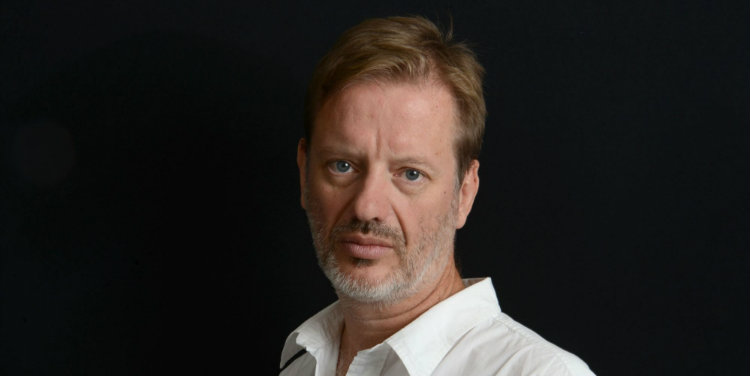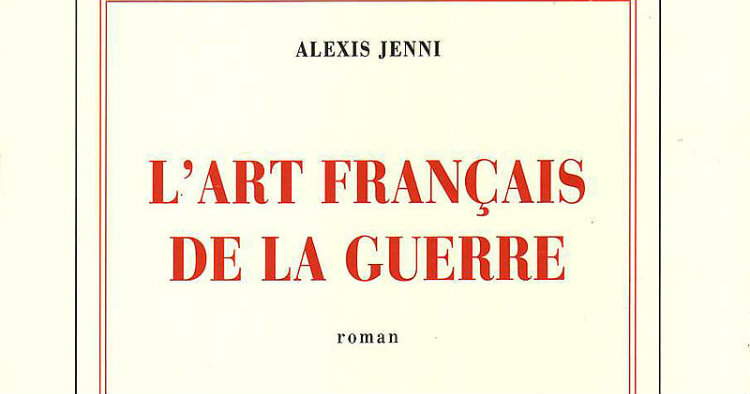Book Review | The French Art of War by Alexis Jenni
I know what you’re thinking. Who wants to know what a nation of wine-guzzling, cheese-eating surrender monkeys has to say about war? It may surprise you to learn, however, that the French have one of the better track records in Europe with regards to battles won, and that their stereotype for cowardice is only a recent development. It’s only really in the last century that they’ve let their warring statistics drop below the respectable; until the World Wars, they actually gave a good account of themselves militarily.
All of which serves as an introduction to this review of The French Art of War by Alexis Jenni, translated from the French by Frank Wynne. Published in France in 2011, this stunning debut novel garnered its biology teacher author the prestigious Prix Goncourt, essentially the Francophone equivalent of the Man Booker Prize. It’s not difficult to see why it won. The English translation, published in 2017, runs to 612 pages, and is a magnificent slog of a novel. As you read, you really can feel yourself being dragged through muddy trenches, stifling jungles, and desert furnaces.
Put simply, this novel dives into French national identity through the exploration of the military traumas that France has both suffered and inflicted over the past 80 years. Our nameless narrator initially becomes fascinated with conflict while watching Desert Storm unfold on his television screen and in the newspapers. This coincides with a mental breakdown of sorts, culminating in a grotesque dinner party for which our narrator has butchered the least appetising parts of an animal to serve his guests, presenting the meal like so many corpses on a smouldering battlefield.
His girlfriend having dumped him, our narrator moves to Lyon where he befriends an elderly painter, Victorien Salagnon, whose life serves as the focus of the second narrative. The book is split into alternating sections: seven “Commentaries”, written in the first person of our nameless narrator, and six “Novels” written in the third person, telling of Salagnon from his teenage years with the French Resistance to the modern day. The writing is unpretentious, for the most part, with only occasional flourishes. While some sections do drag on, the style is reminiscent of Hemingway in its simple, building pace that leads to several emotional and narrative payoffs.

The French Art of War is a wonderful tangle of history, conflict, race, identity, politics, and language. A five-minute conversation with any French person will likely impress upon you just how seriously they take their language, and it is something that Jenni is keenly aware of, and comes back to again and again:
How dare I speak for my whole country?
I speak only of my throat. A country is nothing more than a tongue, a dialect with an army. France is the sum of spaces in which French is spoken.
We can discern from this quote alone how questions of empire and colonialism are never far from those of language and power. Jenni masterfully weaves these variegated themes throughout the novel and in so doing he creates as complete a representation of France as you are likely to find in modern literature.
Even if you keep only one eye on the news, you may have seen over the last few years how riots occasionally break out in the disadvantaged suburbs of French cities, particularly Paris. These banlieues are often home to people from former French colonies in North and West Africa who have migrated and settled in France. There seems to be an ever-present tension between the police force and these migrant communities – a relic of empire – as elaborated here:
The forces of law and order do not maintain order, they create it; because there is nothing more orderly than war. […] From their belts hung the implements of beating and restraint. Their redesigned uniform was based on the paratroopers.

The French Art of War will surely become, if it hasn’t already, an important text in the field of postcolonial literature. The entire planet is still, in many ways, haunted by Europe’s brutal colonial past, as the narrator asserts: “We are infected by colonial corruption.” After the horror and humiliation of World War Two, the French set about inflicting similar atrocities on its imperial subjects in Africa and Asia, which was seen as less despicable because these people weren’t white. Throughout the novel, life is never cheaper than in French Indochina (Vietnam) or Algeria.
The author also nails home Charles de Gaulle’s role in rehabilitating France in its own eyes – “By the sheer power of his words” – after the indignity of occupation, and how he conjured a national identity around the concept of resistance and exceptionalism. All of this is in stark contrast, of course, to the accounts of Salagnon’s life of soldiering in Indochina and Algeria as the French empire gradually falls apart. It wont escape even the casual reader that the terror the French forces visited upon its colonies finds its echo in modern terrorist attacks in the metropole.
There is simply too much in this novel to do it justice in a short review. Suffice it to say that this is one of the best books I’ve read in a long time. The pacing is superb, although it can drag in parts, and the characters are so expertly drawn that I expect them to be sitting together chatting in a café in Lyon should I ever go there. The only book to which I think a comparison can be drawn is Midnight’s Children by Salman Rushdie, one of my favourite novels. Both manage to distil an entire country’s recent history and tortured psyche into less than a thousand pages, a truly rare and magical feat.
Midnight’s Children won the Booker Prize on its publication in 1981, the 1993 Booker of Bookers Prize, as well as the Best of the Booker in 2008. I would not be at all surprised to see The French Art of War establish a similar pedigree, in both French and English, in the years to come.

